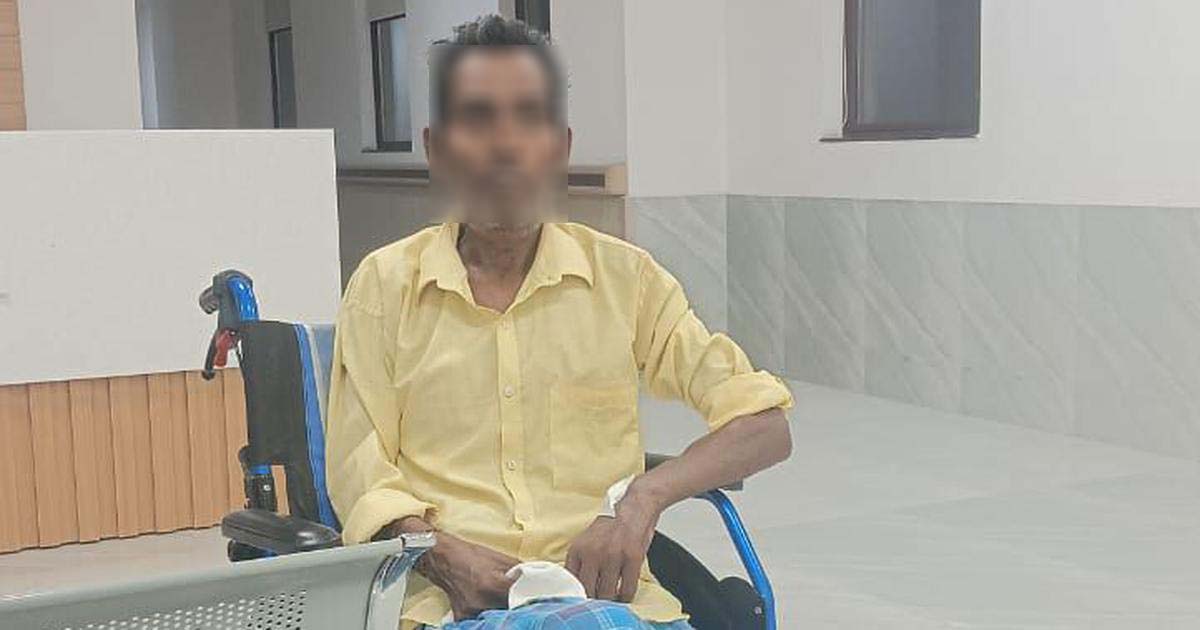A 56-year-old Muslim man of Bengali origin, detained at Assam’s Matia detention centre since late May, died on Sunday after months of deteriorating health. As per a report of Scroll, the man, Amzad Ali of Rowmari village, Barpeta district, had been picked up by Border Police on May 28 as part of a renewed crackdown on persons declared “foreigners” by the state’s controversial Foreigners Tribunals.
Ali’s cancer was detected only on August 11, weeks after his condition had worsened inside the camp. He was initially shifted to the Goalpara Civil Hospital and later to Gauhati Medical College and Hospital (GMCH). Doctors informed authorities that his cancer was terminal and that he could only be given palliative care. Despite this, the state refused to release him. On September 1, his cousin Abdul Jalil petitioned the Goalpara Deputy Commissioner for his release, citing both medical necessity and the detention centre superintendent’s own advice to take him home for treatment. The plea was ignored, according to Scroll’s report.
Ali died at the State Cancer Institute, Guwahati on Sunday, leaving behind his elderly mother, wife, three sons and four daughters.
Declared Foreigner on dubious grounds
Like thousands of others, Ali’s ordeal began decades ago. Branded a “D-voter” (doubtful voter) in 1997 by the Election Commission, he faced a Foreigners Tribunal inquiry years later. In 2017, a notice was issued; in April 2021, the tribunal declared him a “foreigner.”
Family members allege he was never informed of the ruling until police arrived to detain him in May 2025. His lawyer, they say, failed to communicate the verdict. Ali had submitted the 1951 NRC showing his parents’ names and electoral rolls from 1966 and 1970 with his maternal grandparents’ names, but the tribunal dismissed these citing “inconsistencies” in linkage, as reported by Scroll. Even his mother’s sworn testimony was rejected, the tribunal claiming she was “tutored.”
This pattern mirrors other cases we have documented, where minor spelling variations, illiteracy-related memory lapses, or missing decades-old records are weaponised to strip citizenship.
Matia Detention Centre: A site of neglect and death
Ali’s death is the second in Matia this year. In April 2025, 42-year-old Md Abdul Motlib of Hojai district died at GMCH after falling ill in detention. Between 2015 and 2022, official records confirm 31 deaths of detainees branded “illegal foreigners”, according to Scroll.
The Matia detention centre, operational since January 2023, is India’s largest and has repeatedly been condemned for substandard conditions. The Supreme Court, responding to petitions, has over the past year issued a string of orders:
- In July 2024, it described conditions as a “sorry state of affairs” — citing lack of proper toilets, sanitation, medical facilities, and clean water.
- In October 2024, it directed the Assam State Legal Services Authority (SLSA) to conduct surprise inspections of Matia to verify conditions.
- In November 2024, after reviewing SLSA’s report, it noted that even basic amenities were lacking and directed the state to improve facilities within one month.
Detailed CJP reports may be read here and here.
Beyond individual cases
Ali’s death crystallises several themes:
- Judicial rebukes unheeded: Despite Supreme Court interventions, Matia continues with inhuman conditions.
- Medical neglect and denial of release: Even terminally ill detainees are held until death.
- Structural injustice in citizenship adjudication: Tribunals disbelieve even primary records, severing families from citizenship over trivialities.
- Silencing by fear: Families too poor to litigate learn of tribunal orders only when police arrive.
Amzad Ali’s life ended not simply because of cancer, but because of a system designed to exclude and punish. His death adds to a grim tally and underscores why India’s detention regime in Assam remains one of the sharpest sites of rights violations against its own citizens.
Related:
From Detention to Deportation: The mass deportations and detention crisis at Assam’s Matia centre
SC: Only 10 deported, 33 of 63 contest foreigner status from the Matia Transit Camp, Assam
Victory in Dhubri FT: Jarina Bibi declared Indian after years of ordeal
